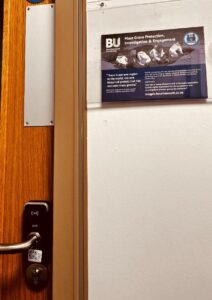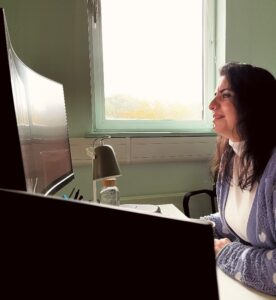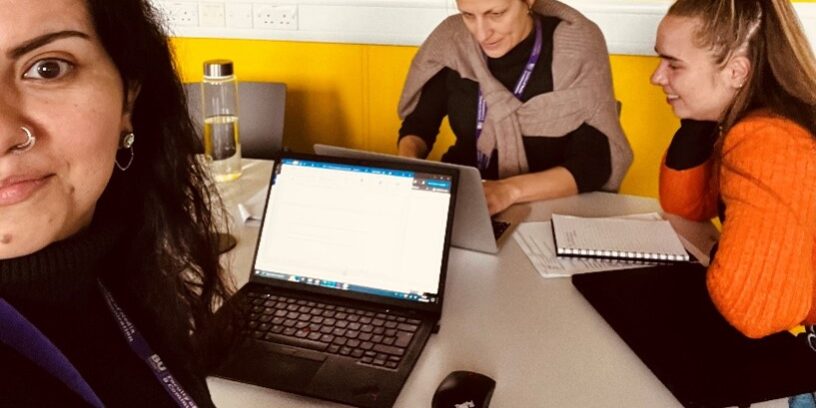IOM’s Missing Migrants Project (MMP) captured more than 63,000 deaths or disappearances during migration from 2014 to 2023, while its recent report denoted in multiple circumstances that the recorded numbers were most certainly an undercount of the true numbers.[1] A decade ago, Reineke and Martínez observed that ‘the invisibility of migrant deaths relates to the invisibility of migrants in life’[2]. The challenges in obtaining sufficient data on migrant deaths and disappearances reflect that this remains true today.
In September I had the pleasure of joining MaGPIE as a Research Fellow where I will be contributing my expertise in forced migration and refugee law to Pillar 3 of the project.
 To introduce myself, I have a legal background and have worn many hats in my work so far both inside and outside of academia. My teaching focuses on forced migration and refugee law, as well as international human rights law, and after my most recent role at the University of Edinburgh I was awarded the Fellowship of the Higher Education Academy. My research and writing covers issues of citizenship, refugee rights and access to justice in African regional law, immigration detention, and unlawful deportation of refugees.
To introduce myself, I have a legal background and have worn many hats in my work so far both inside and outside of academia. My teaching focuses on forced migration and refugee law, as well as international human rights law, and after my most recent role at the University of Edinburgh I was awarded the Fellowship of the Higher Education Academy. My research and writing covers issues of citizenship, refugee rights and access to justice in African regional law, immigration detention, and unlawful deportation of refugees.
In my direct work with migrants, asylum seekers, and refugees I conducted fieldwork research, provided legal aid, and carried out refugee status determination and resettlement at the United Nations High Commissioner for Refugees (UNHCR). I have also worked at various non-governmental organisations, contributed in-house research on forced labour and human trafficking, and provided the Home Office with expert advice on their country of origin information (COI) products used to determine refugee status.
Bringing my experience to MaGPIE will ultimately involve drafting a legal document that aims to influence policy and advance research on an urgent issue. While this could seem daunting, reaching that stage will not be a solitary activity. During my first few weeks getting to know the team, there has been plenty of knowledge sharing and observing each team member’s work, which has been exciting and inspiring. Although it has only been a short period so far, it is evident that the team’s interdisciplinarity is not only essential to the overall project, but to WP 3.1.
 Profs Klinkner and Smith have begun working with me on identifying the building blocks of WP 3.1, informed by lessons from the Bournemouth Protocol. As we work toward reaching the milestones of the workpackage, we will continually be asking ourselves what else needs to be done and how our unique roles can shape legal and policy research, increase visibility of migration and mass graves, and achieve justice for migrants and families who are most impacted by mass graves.
Profs Klinkner and Smith have begun working with me on identifying the building blocks of WP 3.1, informed by lessons from the Bournemouth Protocol. As we work toward reaching the milestones of the workpackage, we will continually be asking ourselves what else needs to be done and how our unique roles can shape legal and policy research, increase visibility of migration and mass graves, and achieve justice for migrants and families who are most impacted by mass graves.
Dr Dalia Malek
__________________________________________________________________________________________________________________________________________________







